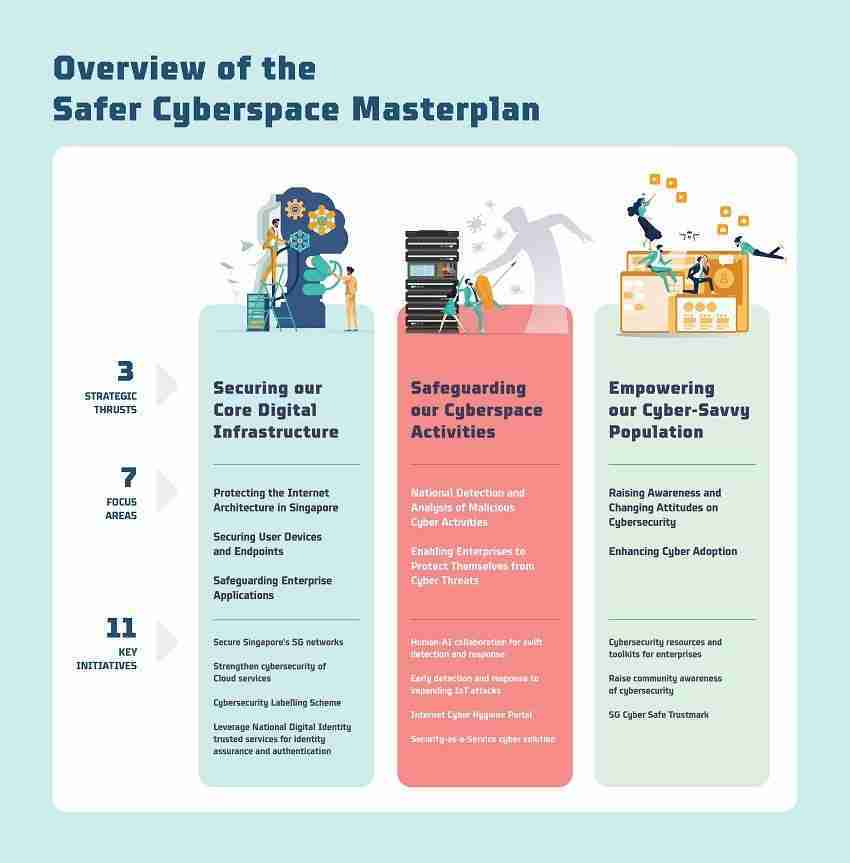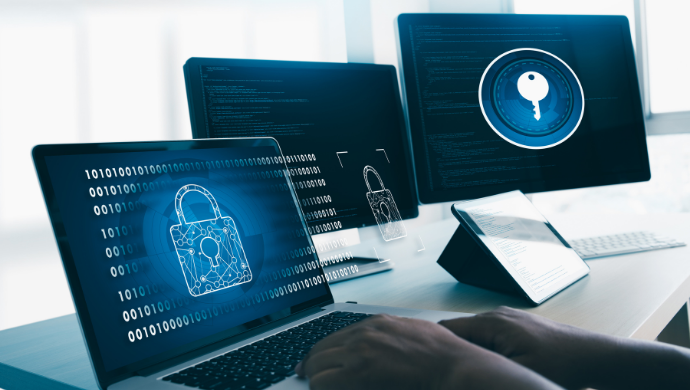KEEP IN TOUCH
Subscribe to our mailing list to get free tips on Data Protection and Cybersecurity updates weekly!







These days, the topic on health doesn’t only pertain to various human-related health issues, but also to digital ones – especially in light of our increasing dependence on the digital space. The need for tighter cybersecurity measures has been underscored recently, thanks to vigilant media outlets that exposed the spike in cybercrimes across the globe.
In Singapore alone, we’ve seen how even behemoth organisations have fallen prey to cyber attacks. Additionally, according to the Cyber Security Agency of Singapore (CSA), 9,430 cybercrime cases were reported in 2019, accounting for 26.8% of overall crime in the island state.
To this end, a silver lining from Singapore has been revealed, and one that couldn’t have come at a better time: the unveiling of Safer Cyberspace Masterplan 2020. The announcement took place on October 6 at the Singapore International Cyber Week, at the opening address of Deputy Prime Minister Heng Swee Keat.
“The pandemic accelerated the pace of change … Telecommuting, video calls, e-learning, online shopping, and digital payment surged,”
-Deputy Prime Minister Heng Swee Keat
Mr. Heng further emphasised that Singapore must “redouble” its efforts to foil cyber threats, which are growing.
Building on the 2016 Singapore Cybersecurity Strategy, this updated Masterplan outlines new policies for a more secure and trustworthy cybersecurity ecosystem. For instance, artificial intelligence (AI) will be utilised heavily, which will be used to sniff out security threats in key infrastructure, including broadband and 5G networks, and consumer devices such as webcams and Wi-Fi routers.
Also Read: PDPA Breach Penalty Singapore: How Can Businesses Prevent

A brainchild of the CSA, this Masterplan was developed in consultation with the cybersecurity and academia, to raise the general level of cybersecurity in Singapore for all – individual users, communities, enterprises, and organisations.
Furthermore, it is central to Singapore’s plans to lead in AI and smart nation deployment globally, and is launched amid swift digitalisation in recent months.
This first strategic thrust will focus on three areas: protecting the internet architecture in Singapore, securing user devices and endpoints, and safeguarding enterprise applications.
Under this thrust, the key initiatives will be:
Also Read: 10 Government Data Leaks In Singapore: Prevent Cybersecurity
Two focus points form the second strategic thrust of Singapore Cybersecurity Masterplan 2020: national detection and analysis of malicious cyber activities, and enabling enterprises to protect themselves from cyber threats.
Under this thrust, the key initiatives will be:
The third strategic thrust will focus on: raising awareness and changing attitudes on cybersecurity, and enhancing cyber adoption.
Under this thrust, the key initiatives will be:
The CSA is charged with implementing the initiatives under the Singapore Cybersecurity Masterplan 2020 in two years, beginning 2021. The Agency cannot do it alone, however. Collaboration across organisations is needed.
To this end, the Agency will be working with Singapore’s Infocomm Media Development and network operators to apply Security-by-Design principles to develop Singapore’s 5G networks.
Only the previous week, the IMDA also announced that it will hire and upskill 1,000 professionals to support the 5G rollout in Singapore. This new collaboration is anticipated to speed up said rollout and bolster the quality of 5G in the island nation.
Additionally, CSA will also be partnering with cloud service providers, industry certification bodies, SMEs, and experts in academia to review and update the existing Multi-Tier Cloud Security standard, a national certification program that serves to govern the IT and communications standard for cloud services in Singapore.
In a survey conducted by the Agency, there is a lack of cyber threat awareness among Singaporeans, with only 4% of survey respondents able to tell apart phishing emails from legitimate ones.
Referring to this data, Commissioner of Cybersecurity and Chief Executive of CSA David Koh has this to say: “Cybersecurity is a collective responsibility, where all stakeholders can and must play a role to protect ourselves in the digital domain.”
Thus, under a new collaboration with the Ministry of Education, upper primary school students in Singapore will participate in a program called Code For Fun to develop cybersecurity literacy, computational thinking and coding skills.
At present, the CSA is working to provide free cyber health screenings to the public. The service is expected to launch by 2021.
“Moving forward,” says Mr. Heng, ” we would like to work with other countries to establish mutual recognition for cyber security labelling and collectively advance the security standards of IoT devices worldwide.”
“Cooperation between countries, across businesses, and with our peoples will make all the difference as we build back better from Covid-19.”